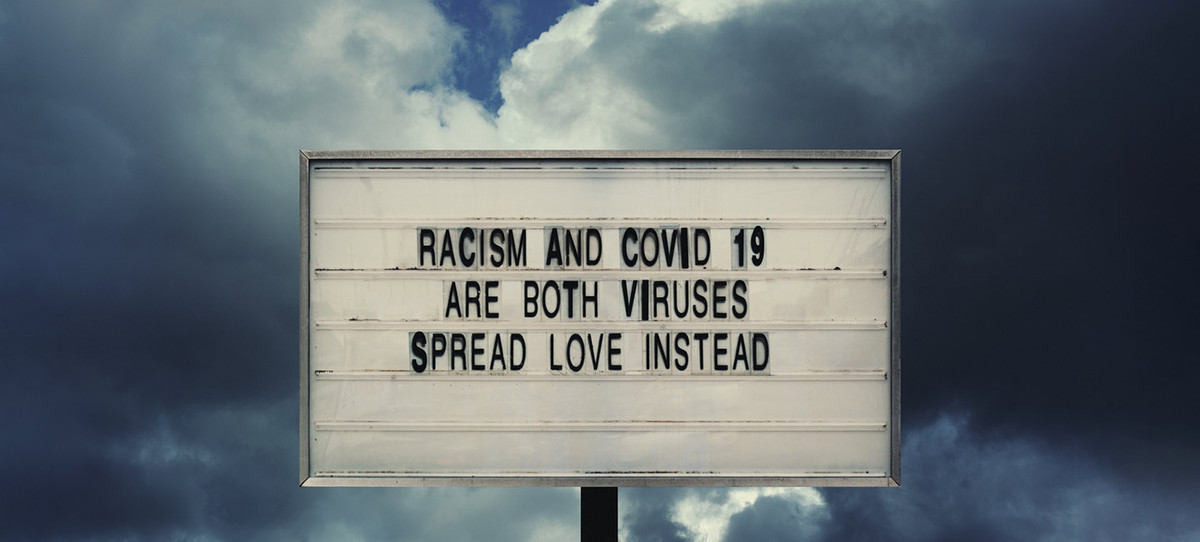A Crisis Amid a Pandemic
The COVID-19 pandemic has exposed long-standing disparities in health care along income and racial lines. Emerging data reveal that blacks in some states have been stricken disproportionately by the novel coronavirus, in their percentage of cases, intensive-care intubations and deaths compared with the rest of the population.
Blacks make up just 17% of Florida’s population, yet they account for 20% of the COVID-19 cases, 26% of the hospitalizations and 22% of the deaths, according to statistics from the Florida Department of Health.
The disparity is starker in South Florida. Though blacks make up only 19% of the region’s population, they account for about 30% of hospitalizations and 26% of deaths there, according to the Florida Sun Sentinel.
The spread of the virus is particularly concerning for black Floridians, where the prevalence of diabetes, obesity and hypertension contribute to the higher mortality rate.

It’s a sad truth that is, unfortunately, not surprising to Dr. B. Lee Green, vice president of Diversity, Public Relations and Strategic Communications at Moffitt Cancer Center.
“The data already show that there is clearly a disparity in the deaths from COVID-19 for blacks,” Green said. “This basically highlights the longstanding health disparities and unequal access to care.”
Unfortunately, those Florida numbers appear to be the rule, rather than the exception.
In Chicago, blacks account for more than half of all positive test results for COVID-19 and 72% of recorded virus-related deaths, even though they make up just 32% of the city's population. In Illinois, about 60 percent of Hispanic people who were tested for the virus were positive, three times the average for other Illinoisans.
In parts of Wisconsin, the disparities have been even more striking. In Milwaukee County, 73% of all COVID-19 deaths have been among blacks, who make up under half of all positive test results and just 28% of the county's population.
In Louisiana, where about one-third of residents are black, 57 percent of coronavirus patients who died have been African-American. Louisiana Health Department data shows that 66% of those who have perished from the pathogen suffered from hypertension, 43% had diabetes, 24% were dealing with obesity and 22% had cardiac disease.
African Americans account for 32% of the population of Louisiana and 13% of the country as a whole, according to Census data.

Dr. Susan Vadaparampil, Associate Center Director, Community Outreach, Engagement & Equity
Data collected in Florida – or any state – is an important tool to educate minority communities directly affected by the pandemic, according to Dr. Susan Vadaparampil, associate center director of Community Outreach, Engagement & Equity at Moffitt.
“To share that message effectively means partnering with organizations that have the most direct reach and trust for these communities, such as churches or community centers,” Vadaparampil said.
Moffitt has used those networks to provide information to communities about the impact of COVID19 on cancer patients, she said.
The COVID-19 pandemic has highlighted just how profoundly health care access and health outcomes are linked with an individual’s employment and income status in the United States. Many African Americans and other minorities cannot stay home because they work in sectors like health care, government, transportation and food supply that are now deemed essential.
In cities, minority populations are still riding public transportation in large numbers to go to work, creating yet another unavoidable exposure risk.
“Millions of Americans are already struggling with loss of employment and their health insurance,” Green said. “Minority communities do bear the brunt of it. Minority communities and the underinsured will need treatment in hospitals and intensive care units and have a higher risk of dying compared to others.”
A small sample of data released by the CDC did reveal racial disparities on a national scale, but there were caveats. The data was pulled from a small sample size during a limited time frame – 14 states during the month of March – and race and ethnicity data was only available from 580 patients hospitalized for coronavirus, out of a total of 1,482 patients in the report.
But the racial disparities emerged even from the small sample. African Americans made up 18% of the patients studied but 33% of those hospitalized for the coronavirus. Whites were 59% of the sample and 45% of the hospitalizations; Latinos were 14% of the patients and 8% of the hospitalizations.
Continuing to collect data from across the country is important, especially now, according to Green.
“It will be critically important for local, state and federal governments to collect and to release data on who is impacted by COVID-19,” Green said. “If that does not happen we are not in a position to take the needed steps or deliver interventions to ensure that every member of our community has access to testing and treatment. “
During a national briefing, Dr. Anthony Fauci, the nation's top expert on infectious diseases, explained the disproportionate effects on the black community as an “exacerbation of a health disparity.” It's not the case that black Americans are getting infected more often, he said, but rather that the prevalence of "underlying medical conditions — the diabetes, the hypertension, the obesity, the asthma" — had led to higher intensive-care admissions and deaths.
And while the current pandemic is an extraordinary event, those underlying medical conditions among minority populations are not.
“Just as prevention is the key to lower cancer risk, the same holds true for lowering the risk of COVID-19—understanding how to prevent it,” Green said. “We have to ensure these populations are getting the necessary information to help lower their risk of the virus.”
Fauci expressed the same sentiment and said that the pandemic’s impact on minority communities is not limited by state borders. Once more data is secured, he said, there should be a call for broader action in all areas of health care.
"So when all this is over — and as we said, it will end, we will get over coronavirus — but there will still be health disparities," Fauci said, "which we really do need to address in the African American community."



